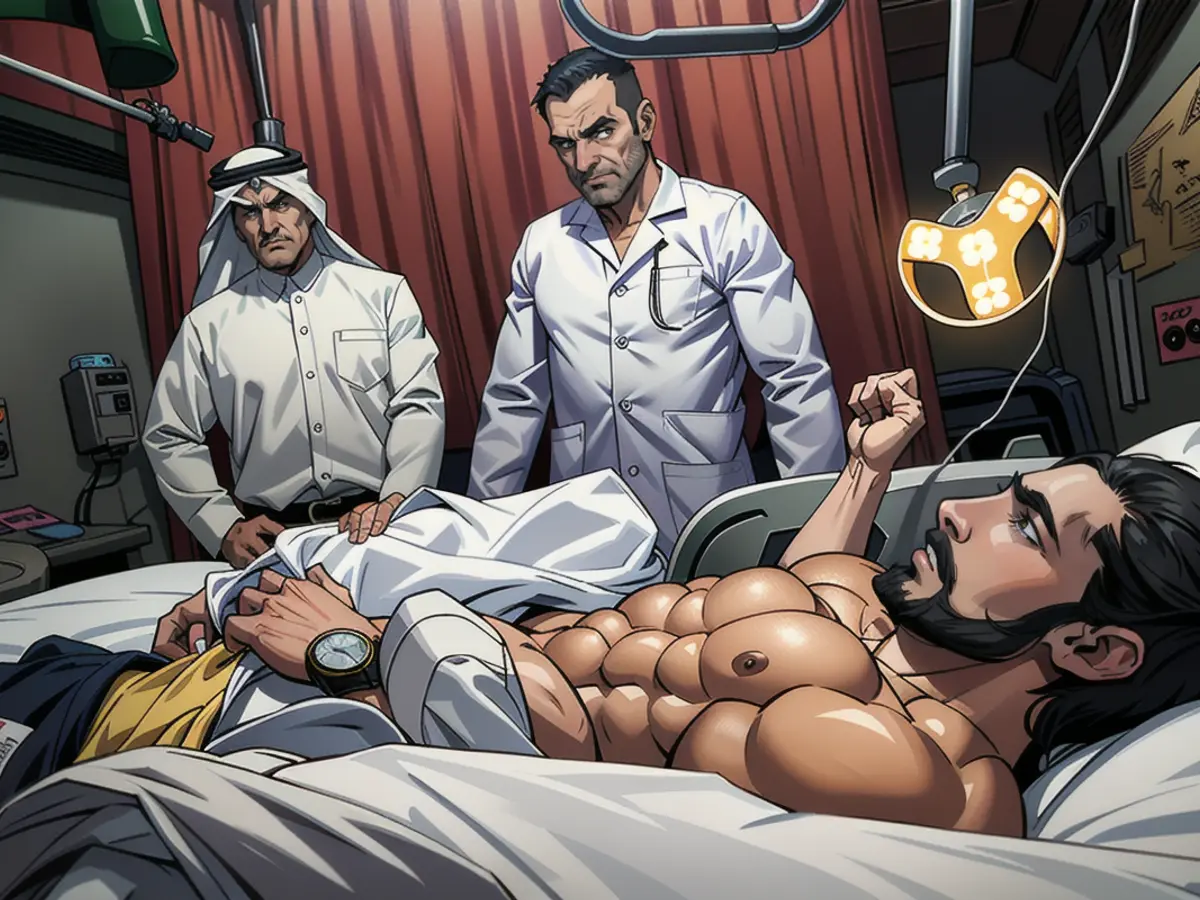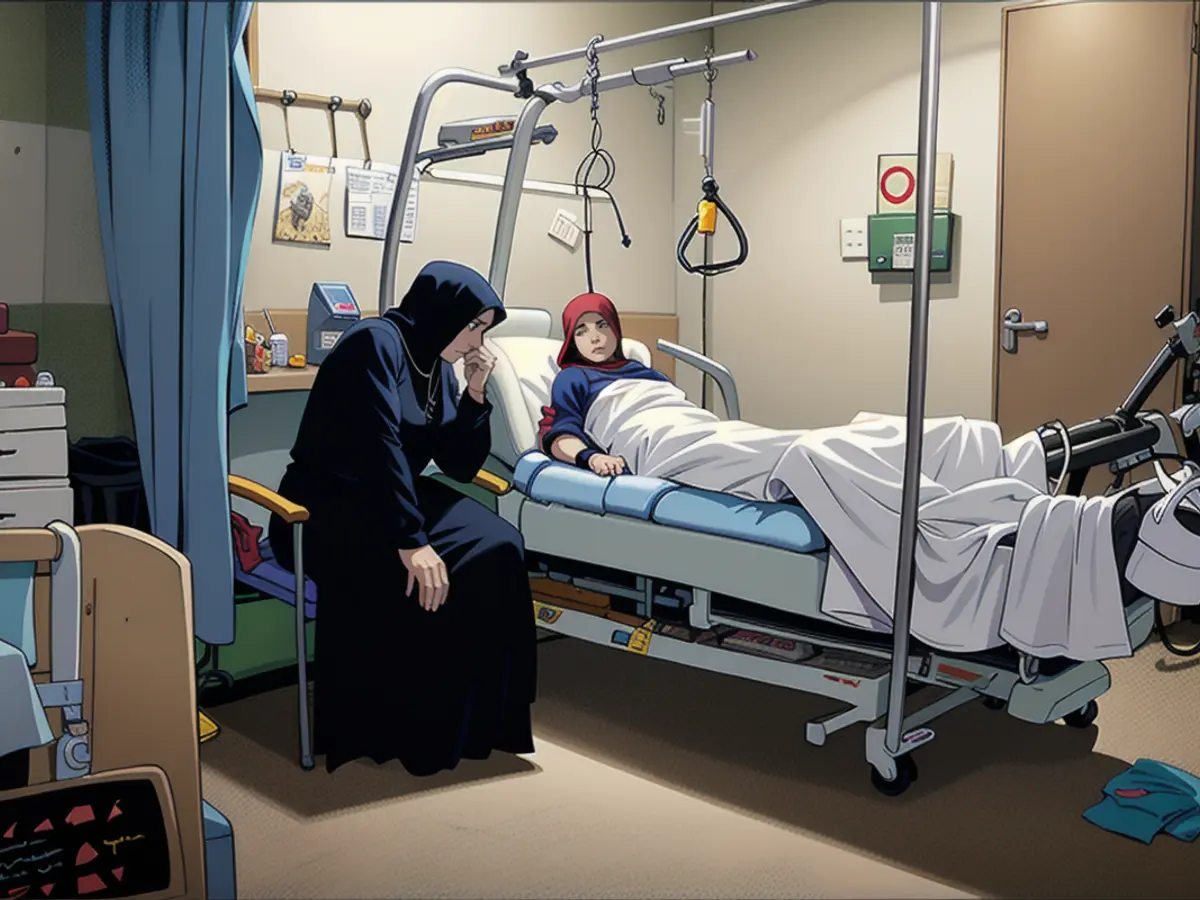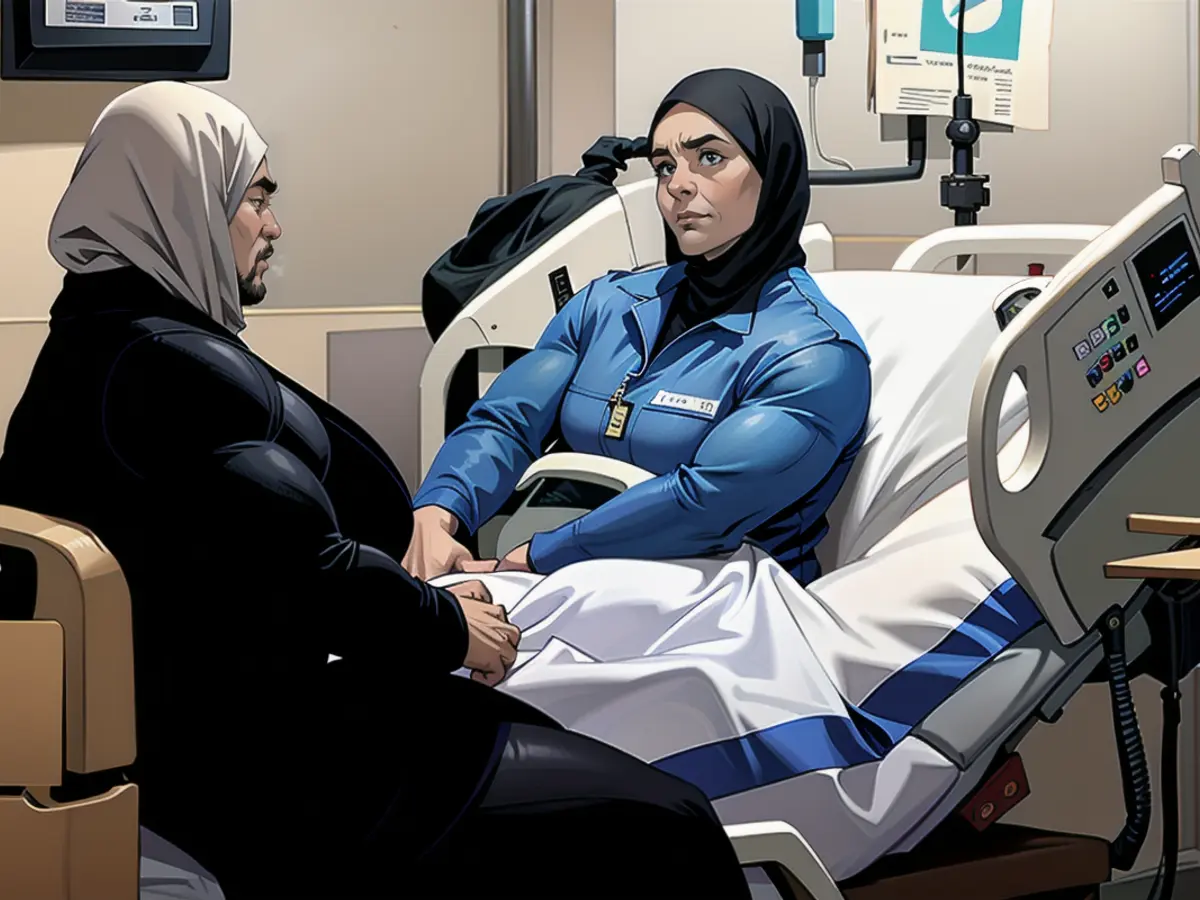'Bringing life to lose it': Injured Palestinian mothers mourn for infants slaughtered in Gaza
Raneem Hijazi still remembers the tight grip she had on her one-year-old son Azzouz before an Israeli airstrike hit their building in Gaza. She could sense something bad was about to happen as a drone flew overhead. Holding him so close to her baby bump, she thought, "Whatever happens to me, happens to him."
She doesn't remember the exact moment of the impact, but the aftermath is etched in her memory. "You don't feel the strike itself, you just open your eyes and you are under the rubble," she recalls.
She began feeling around, searching frantically for Azzouz, until her mother-in-law screamed. "She found him lying on my belly. She picked him up. His body was in her hands and his head dropped on my belly," Hijazi remembers.
Since then, Hijazi has struggled with her will to live. She initially asked her family to leave her to die, but instead, they set out to find help to dig her out of the destroyed house in Khan Younis.
"My leg wasn't visible. My arm was only hanging by a small piece of flesh. I tried to tear it apart, but I couldn't, so I rested it on my belly," she says.
By the time she reached the hospital, she was presumed dead. Eight months pregnant, the doctors had to look again before realizing she was still alive. They delivered her daughter Mariam via cesarean section.
"As she took her first breath, I came back to life. The doctors told me it was a miracle," Hijazi says.
Hijazi tells her story sitting in a hospital bed in Doha, Qatar's capital. Her left arm has been amputated, and both legs sustained extensive damage. She requires bone grafts to repair them.
The relatively calm hallways of the Gaza ward at Hamad Hospital in Doha are worlds apart from the overwhelmed medical facilities in Gaza. Behind each door lies a story of a miraculous survival marred by devastating loss. Mothers being treated for life-changing injuries can finally start to process the loss of a child while coming to terms with their diminished ability to care for their surviving children.
"My daughter is the one that saved me. When I was first injured, I said, 'I don't want her. I want my son back.' I couldn't even lift my head. I couldn't see her, much less take care of her," Hijazi says, hoping that one day her daughter will give her the strength to move forward.

Hijazi was evacuated from Gaza for medical treatment a month after her injury. Mariam, nearly as old as the war and with the same chubby cheeks as her late brother, is with her grandparents in Egypt. Hijazi has watched her grow up via video calls. She hasn't held her for over six months. In Doha, she leaves the hospital between surgeries, with doctors assuring her that she will be able to walk again.
"I have been working in orthopedics for about 21 years. The kind of injuries, the severity, and the types of bone loss, and the kinds of infections we faced with the Gaza patients are beyond anything I've seen before," says Dr. Hasan Abuhejleh, a consultant orthopedic surgeon at Hamad Hospital. He's had to inform many patients that their amputations, though necessary to save their lives, could have been prevented if there were more resources available to them in Gaza.
More than 4,800 people have been evacuated from Gaza for medical treatment since Israel launched its military offensive in response to the Hamas attacks of October 7. Thousands more with dire conditions are waiting to leave. Israel has denied 42% of the medical evacuation requests made, according to an update from the United Nations and aid agencies on May 10. In recent days, the closure of Rafah Crossing has completely halted all medical evacuations of critically ill and injured patients from Gaza.
CNN has not yet received a response from Israel's Coordinator of Government Activities in the Territories (COGAT) regarding the rejected medical evacuation requests.
The delays in medical evacuations have significantly impacted the cases that come to Abuhejleh's hospital.
Shaimaa Al-Ghoul messages the CNN team from an isolation room. Like many patients coming out of Gaza, she has a drug-resistant infection picked up in Gaza's struggling hospitals.
Al-Ghoul lost her husband and two of her four children in an airstrike in Rafah in February. The family was sleeping in one room when suddenly, "the bed was split in half, and I fell onto the ground floor," she recalls.
"I heard Hothaifa (her 11-year-old son) pleading for rescuers not to leave him behind. I didn't hear my husband, Jenan, or Mohamed, so I knew they were martyrs," she says.
She was nine months pregnant and believes the shrapnel that hit her belly likely killed her unborn son. Abdullah was born stillborn the following day.

Al-Ghoul posts cheerful photos of her children taken before the war, followed by a widely-shared image of her daughter Jenan's body, her lower limbs severed and dangling from a window due to the explosion. She desires to exhibit the horrors of war and the nightmares that haunt her and others in the hospital ward.
Hothaifa, her son, walks through the hospital halls on crutches. His injured leg is too swollen to bear weight. The carefree laughs of his 6-year-old sister, Mariam, who was unharmed and evacuated, appear unfamiliar to him.
Mariam enters the room that other patients warned us about, containing patients with harrowing tales of hurt and sorrow. She plays on the beds that were left empty when some patients left to get some fresh air at sunset.
Life in the Aftermath
In this room, Shahed Alqutati, 23, completes her physiotherapy. Her left leg was amputated and her other leg is encased in an external fixator - a metal frame that holds her broken bones in place. The attack that hit her third-floor apartment in northern Gaza on October 11 threw her and her husband Ali, a 26-year-old university professor, onto the street.
Shell-shocked, she opened her eyes to find her leg torn and her surroundings awash in blood. “My husband was in front of me. He was also injured. He lost both his legs and his hand. I shouted to him 'Ali, Ali.' He heard me and also shouted 'Shahed.' He looked down at his severed arm and asked me 'where is my arm?'"
These were their last words. Both were transferred to the hospital, but Ali didn't make it. She lost the love of her life and the baby they were set to have.
"A week before the war, we bought everything for the baby: every piece of clothing, every t-shirt," she recalls. "Pink, pink, pink. We were very excited." Her daughter Sham was stillborn two days afterward, two months before the due date.
Alqutati's suffering didn't cease there. She was taken to Al-Shifa Hospital in Gaza City in November and endured an Israeli siege that left patients and medical staff without food or water and with few medical supplies. After two weeks, the Israeli military forced her and others to leave the hospital.

Her father pushed her in a wheelchair along roads in disrepair. At a checkpoint, she claims, Israeli soldiers fired into the air and told people to leave. "Go back? Where can we go? There's nowhere to go. We walked and walked for too many hours," she says. That stumbling block added an additional day to their journey through the damaged streets.
By the time they reached Rafah, her wounds were bleeding and infected, Alqutati claims, but she was still afraid of going to hospitals struggling to accommodate the ongoing influx of people hurt in the conflict. "If I go to the hospital, I'll die, not recover or heal," she says. Her father bandaged her wounds away from the hospitals.
Treatment arrived after she was medically evacuated beyond Gaza, and with it came the time to come to terms with her loss. In one of the many videos she shares on social media, her late husband Ali can be seen sheepishly grinning when he realizes she's filming him again, at a university event, from the back seat of a car, as he walks around a shop.
"Nobody will feel my pain. I'm strong with the people, happy, laughing. But when I'm alone, I feel something painful here," she says, pointing to her heart. "I can't be healed from that."
"This will stay with me for my entire life. Amputation, fractures, burns, nerve problems," she adds. "There is no substitute for a new leg for me. And how could I forget? I lost my dear partner and my baby."
In spite of the varied outcomes of their pregnancies, Alqutati and Hijazi share a similar despondency, weighing them down with the horrors of the war in Gaza. Much like other medical evacuees, they have no idea about their future and are concerned for their family members stranded in Gaza.
"Life has ended. There's no more joy," Hijazi laments. "I close my eyes and all the memories flood me. I went to the mall and saw the baby formula I used for my son, and I felt as though I was dying. Just baby formula - imagine what happens when I see his picture or videos or his toys or his clothes."
"The pain will never go away. These are things that can't be forgotten," she says. "We bring new life only to lose them."


Read also:
- This will change in December
- Dikes withstand water masses so far - Scholz holds out the prospect of help
- Fireworks and parties ring in 2024 - turn of the year overshadowed by conflicts
- Attacks on ships in the Red Sea: shipping companies avoid important trade route
In the midst of the global community's focus, the tragic events in the Middle East continue to claim lives.
The world watches with concern as injured Palestinian mothers like Raneem Hijazi from Gaza struggle to cope with the loss of their children.
Source: edition.cnn.com







